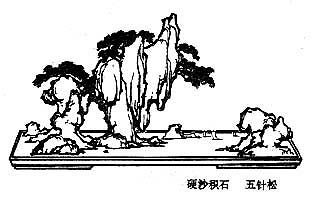論
語
Lun Yu 
 – The Analects of Confucius
– The Analects of Confucius
The Master discusses with his disciples and unveil his preoccupations with society. Tr. Legge (en), Lau (en) and Couvreur (fr).
Lunyu II. 21. (37)
Confucius's explanation of his not being in any office.
1. Some one addressed Confucius, saying, "Sir, why are you not engaged in the government?"
2. The Master said, "What does the Shû-ching say of filial piety? – 'You are final, you discharge your brotherly duties. these qualities are displayed in government.' This then also constitutes the exercise of government. Why must there be THAT – making one be in the government?"
Legge II.21.
Someone said to Confucius, 'Why do you not take part in govern- ment?' The Master said, 'The Book of History says, "Oh! Simply by being a good son and friendly to his brothers a man can exert an influence upon government." In so doing a man is, in fact, taking part in government. How can there be any question of his having actively to "take part in government"?'
Lau [2:21]
Quelqu'un dit à Confucius : « Maître, pourquoi ne prenez-vous aucune part au gouvernement ? » Maître K'ong répondit : « Le Livre des Documents1 ne dit-il pas, en parlant de la piété filiale : “Respectueux envers vos parents et bienveillants envers vos frères, vous ferez fleurir ces vertus partout sous votre gouvernement ?” Faire régner la vertu dans sa famille par son exemple, c'est aussi gouverner. Remplir une charge, est-ce la seule manière de prendre part au gouvernement ? »
Couvreur II.21.
Suatu pepatah 'Buku yang beredar, membiasakan kasih sayang hanya kasih sayang, hubungan teman saudara-saudara kita, dapat diterapkan sehubungan ada pemerintah, ada lagi yang diatur pemerintah, alasannya perlu diatur pemerintah’.
b. Nabi menjawab : "Di dalam Shu Jing tertulis, 'Berbaktilah' Berbakti dan mengasihi saudara-saudara, ini sudah berarti membantu pemerintah ! Mengpa harus memangku jabatan baru dinamai membantu pemerintah ?"

The Analects of Confucius – Lun Yu II. 21. (37) – Chinese on/off – Français/English
Alias the Lunyu, the Lun Yü, the Analects, les Entretiens du maître avec ses disciples.
The Book of Odes, The Analects, Great Learning, Doctrine of the Mean, Three-characters book, The Book of Changes, The Way and its Power, 300 Tang Poems, The Art of War, Thirty-Six Strategies
Welcome, help, notes, introduction, table.
Index – Contact – Top























